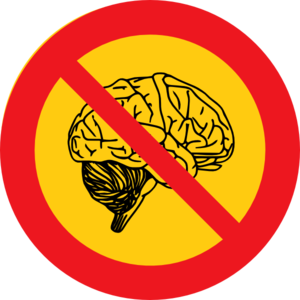

|
Go out laughing Beethoven’s music was full of fun in the last months of his life. The 16th and last string quartet op 135 is known as “Muß es sein?” = “Must it be?”, which sounds weighty enough, until you realize that it’s about the repayment of a 50 cent loan. Listen to the scherzo, fast and energetic with constant rhythmic surprises and the most repetitions of a bass figure (I count 48) of any work of Beethoven (that I know of). |
1 February 2014
|
|
Leadership and spiritual growth — oil and water Are there good reasons to assume leadership and press – perchance to fight – for major social or political change? It would seem that the great majority of people doing this work are unclear, if not megalomaniacally deluded as to their own importance. It is a common story to hear that a spiritual leader begins with a grounding in his practice and the truths that he is moved to share, but is gradually seduced by his own success, becoming autocratic or even abusive. Political leaders are just the same, except that they don’t even begin from a place of clarity or grounding. Much good may be accomplished by progressive, idealistic leaders nevertheless, even if their own lives are destroyed in the process. Seeking to influence large numbers of people by any path, while maintaining humility and a spirit of service, is certainly a treacherous path for any individual. It is critical to pursue one’s vision passionately, while checking constantly that one’s own sense of fulfillment and well-being are not contingent on outward success. I suspect that this is a path to which one is called irresistibly at a deep level, that rational thinking about pros and cons is of little utility, and that even the most highly-developed bodhisatvas harbor a bit of latent egotism. The path of leadership may be aided by
Emulate Gandhi. Read his autobiography, and learn from his lifelong struggle with this issue. — Josh Mitteldorf |
2 February 2014
|
|
How does matter give rise to consciousness? Consciousness is the raw material, the potential from which all experience is crafted. Maybe it is consciousness that is the source of the material universe. There are hints of this in quantum physics, as well as in every mystical tradition. We think of our consciousness as arising in the brain, but maybe consciousness is primary. Maybe what the nervous system does is to bring consciousness more into focus. ... Atman = Brahman: Atman is the sense of “I”, the “I-ness”. Brahman is the creator. The source of all creation is the conscious self. — Watch an illustrated lecture by Peter Russell, The Primacy of Consciousness |
3 February 2014
|
|
Shadow within The shadow describes the part of the psyche that an individual would rather not acknowledge. It contains the denied parts of the self. Since the self contains these aspects, they surface in one way or another. Bringing Shadow material into consciousness drains its dark power and can even recover valuable resources from it. The greatest power, however, comes from having accepted your shadow parts and integrated them as components of your Self. Everyone carries a Shadow, and the less it is embodied in the individual’s conscious life, the blacker and denser it is. At all counts, it forms an unconscious snag, thwarting our most well-meant intentions. One does not become enlightened by imagining figures of light, but by making the darkness conscious. — Carl Jung |
4 February 2014
|
|
CVS to stop selling cigarettes CVS/Caremark, the country’s largest drugstore chain, announced on Wednesday that it planned to stop selling cigarettes and other tobacco products by October. Kathleen Sebelius, secretary of Health and Human Services, said in a statement that the CVS decision was “an unprecedented step in the retail industry” and predicted it would have “considerable impact.” |
5 February 2014
|
|
Adding up all the numbers Suppose you add up all the positive integers, 1 + 2 + 3 + 4 + 5 + … and so on forever. The sum gets bigger and bigger without end. It is unlimited. This is what the word “infinity” was invented to describe. The sum of all the positive integers is infinite. Curiously, there’s another way to approach the problem. Swiss mathematician Leonhard Euler discovered this in the 18th Century. He devised the Zeta function, defined as the sum1/1s + 1/2s + 1/3s + 1/4s + … For s=-1, this is the sum of all integers. By approaching this sum from another direction, using imaginary numbers, Euler was able to get a finite answer, to whit - 1/12. About 150 years later, Indian math prodigy Ramanujan working in isolation in a remote village, rediscovered the same answer independently, just scribbling in his own notebook. He wrote to British mathematician G. H. Hardy, “Dear Sir, I am very much gratified on perusing your letter of the 8th February 1913. I was expecting a reply from you similar to the one which a Mathematics Professor at London wrote asking me to study carefully Bromwich’s Infinite Series and not fall into the pitfalls of divergent series. — I told him that the sum of an infinite number of terms of the series: 1 + 2 + 3 + 4 + · · · = −1/12 under my theory. If I tell you this you will at once point out to me the lunatic asylum as my goal. I dilate on this simply to convince you that you will not be able to follow my methods of proof if I indicate the lines on which I proceed in a single letter.…” In the late 1940s when physicists had their first success combining Einstein’s special relativity with Heisenberg’s quantum mechanics, the theories had the embarrassing consequence that certain straightforward calculations (the mass of the electron, for example) came out infinite. The first solution to this dilemma was just to ignore the infinity, and use the number that everyone knows from experiment is the correct mass for the electron. But then things waxed stranger. Some physicists found if they continued to stare at the equations long past midnight, they could imagine that there were two parts to the calculation, a finite part and an infinite part. If they ignored the infinite part, the finite part gave the right answer, or close to it. So physics became adept at the dubious art of subtracting infinities to get a physical answer, an answer they could compare to experiment. 65 years on, theoretical particle physicists are so used to calculating with infinities, they have almost forgotten that the very idea once seemed absurd, and maybe it still does to seasoned mathematicians. But Euler’s Zeta function has become a staple trick of the trade, and certain physicists will tell you with a straight face that they can add up more and more integers and get a bigger and bigger sum, but if the sum actually extends to infinity, the answer is -1/12. — Here’s a video from Numberphile. |
6 February 2014
|
|
Interface There has been steady process in recent years creating an interface between human nerves and computer systems. Yesterday, NPR reported on an Italian prosthetic hand that can be attached to existing nerves. The nervous system does half the job, because it is plastic, and the brain learns how to interpret its signals and navigate its manipulations. |
7 February 2014
|
|
For you alone Every man has his own vocation. The talent is the call. There is one direction in which all space is open to him. He has faculties silently inviting him thither to endless exertion. He is like a ship in a river; he runs against obstructions on every side but one; on that side all obstruction is taken away, and he sweeps serenely over God’s depths into an infinite sea. This talent and this call depend on his organization, or the mode in which a general soul incarnates in him. He inclines to do something which is easy to him, and good when it is done, but which no other man can do. He has no rival. For the more truly he consults his own powers, the more difference will his work exhibit from the work of any other. When he is true and faithful, his ambition is exactly proportional to his powers. By doing his work he makes the need felt which only he can supply. — R W Emerson (“Spiritual Laws”) |
8 February 2014
|
|
Blessing May you experience as much ecstasy as you can handle. May your capacity to handle ecstasy grow from more to more.
May you experience more ecstasy than you can handle. — Josh Mitteldorf |
9 February 2014
|
|
Vespers Listen to this segment of the Vespers of Rachmaninoff, and watch slides of Russian landscape and churches. |
10 February 2014
|
|
Phone Survey We’re doing a phone survey, asking |
11 February 2014
|
|
A Dream I dreamed I had come into an immense underground temple with lofty arched — Ivan Turgenev |
12 February 2014
|
|
Pantheism God sleeps in a rock. — Ibn al Arabi, Sufi mystic 1076-1148 |
13 February 2014
|
|
Love takes us over. We receive a gift of grace and the self dissolves in caring for another. Worry for our future is absent. It is not that we are confident in abundant provision for ourselves, but rather that this is of no concern. Sometimes, there is great joy. — JJM |
14 February 2014
|
|
Valentine’s day: The Morning After It turns out that real love is a feeling utterly unlike what we pictured to ourselves. Love, indeed, is not a feeling at all, it’s a malady, a certain condition of soul and body. It does not develop gradually. One cannot doubt about it, one cannot outwit it, though it does not always come in the same way. Usually it takes possession of a person without question, suddenly, against his will — for all the world like cholera or fever…. It clutches him, poor dear, as the hawk pounces on the chicken, and bears him off at its will, however he struggles or resists…. In love, there’s no equality, none of the so-called free union of souls, and such idealisms, concocted at their leisure by German professors…. No, in love, one person is slave, and the other master; and well may the poets talk of the fetters put on by love. Yes, love is a fetter, and the heaviest to bear. At least I have come to this conviction, and have come to it by the path of experience; I have bought this conviction at the cost of my life, since I am dying in my slavery. — from Diary of a Superfluous Man, by Ivan Turgenev |
15 February 2014
|
|
Stand up for justice on behalf of others, less privileged than yourself, and you will experience the magic of concerted action. Expect no justice for yourself, or you will become bitter with dissatisfaction. Expect the unexpected, and you will be surprised by miracles that transcend your imagination; hope for any miracle in particular and you court disappointment. — Josh Mitteldorf |
16 February 2014
|
|
Science and Mysticism (my favorite topic) “People become mystics … for one of three reasons: because they’ve had a mystical experience, because they want one, or because they’re in love.” Were Rabbi Kushner a scientist, he would know there is another path to mysticism. Follow any scientific investigation thoroughly, honestly, deeply to its root and you will find that it leads not merely to questions for which we have no answers, but to cavernous paradoxes, a threshold to mysticism. Nils Bohr went in search of objective reality, and found that there is a co-creative role for the observer in the fundamental laws of physics. Kurt Gödel sought to systematize the process of mathematical proof, and found a proof that there are infinitely many mathematical statements that can never be proven true and can never be proven false. Einstein set out to understand physics in terms of influences that propagate in space from cause to effect, and found that quantum mechanics implied an entanglement among events and particles that are widely separated in space and in time, and that could not be framed as “cause and effect”. David Bohm discovered that in addition to the causes and effects that we study as physics, there are patterns woven through space and time like a hologram, impossible for us to discern because they are everywhere and nowhere. Robert Jahn sought to eliminate all sources of statistical bias and hidden paths of subconscious influence from his experiments with telekinesis and telepathy, and found anomalies that persisted over decades and grew to be statistically significant at the level of p<10-15. Elizabeth Kubler-Ross set out to study the cultural taboos that keep us from confronting our mortality, and came to think that maybe we’re not mortal after all. Animal communication, cold fusion, the evolution of evolvability, and the values of the fundamental physical constants are other areas where I find that pursuit of traditional science leads us to questions that force us to expand our framework and our very idea of what constitutes a scientific view of reality. — JJM |
17 February 2014
|
|
Michael Stone on Non-attachment Non-attachment doesn’t mean not caring. The world needs us to care. Non-attachment to our theories and ideas is what it’s all about. The willingness to be with what is, especially when it is not what we thought, or what we wanted. ...not a witness, dispassionate and dissociated, but totally immersed in life, nature, community, Gaia — Watch short video of Michael Stone I would just add that for people like me, there is another lesson in non-attachment to renown and leadership. -JJM |
18 February 2014
|
|
Reality is what’s left after you peel away our perceptual and conceptual filters And then it happened. Something peeled off the visible world, taking with it all meaning, inference, association, and words. If anyone had asked, I would have said I was looking at a tree, but the word “tree” was gone, along with all the notions of treeness that had accumulated in the dozen or so years since I had acquired language. Was it a place that was suddenly revealed to me? Or was it a substance — the indivisible, elemental material out of which the entire known and agreed-upon world arises as a fantastic elaboration? I don’t know, but I was alarmed to discover that when you take away all human attributions — the words, the names of species, the wisps of remembered tree-related poetry, the fables of photosynthesis and capillary action — that when you take all this away, there is still something left. … They were just doing their job, these poets, which is really the job of all of us — to keep applying coat upon coat of human passion and grandiosity to the world around us, trying to cover up whatever it is that lies underneath. — Barbara Ehrenreich, in next month’s Harper’s Magazine |
19 February 2014
|
|
Previously I did not understand why I got no answer to my question; — Kafka When I lay these questions before God I get no answer. But a rather special sort of “No answer.” It is not the locked door. It is more like a silent, certainly not uncompassionate, gaze. As though He shook His head not in refusal but waiving the question. Like, “Peace, child; you don’t understand.” — C. S. Lewis |
20 February 2014
|
|
Life, liberty and … No one ever told me that happiness is a choice. Like everyone else, I grew up with the impression that happiness is a state that you reach when you achieve what you want. Most of us think happiness is a goal. It’s written right there in the Constitution: “the pursuit of happiness.” But pursuing happiness is a fool’s errand. Anything you chase will run away from you. So it is with happiness. … All of us tend to search outside ourselves for happiness because we think it’s a state to be reached, a goal to be pursued. It’s not. Happiness is a skill. You have to develop this skill like any other: practice. Happiness is a choice, moment to moment. About every three seconds, you have to choose to be happy. — read more from Nabeel Afsar If we think of happiness as a way of being, as something that represents a state of flourishing, of fulfillment, of a well-being that endures through all events in life, even all different kinds of emotions and mental states, something that gives you the inner resources to deal with whatever comes your way—pleasant, unpleasant circumstances, helpful circumstances, adverse circumstances — something that gives you some kind of platform or way of being that’s behind all that, and that gives you the resources to deal with all that. So then if it’s something that pervasive, then it’s not something that is so personal that it’s incommunicable with others. – Mathieu Ricard |
21 February 2014
|
|
Spanish Alternatives to Capitalism In this video, British journalist Dan Wilcox talks about living alternatives to capitalism, focusing on the Andalusian village of Marinaleda. People in this village campaigned for years in the 1970s and 80s before the Spanish government relented, buying a few square miles of fallow farmland from a fantastically wealthy Spanish aristocrat, and turning it over to the town. Thirty years later, we have a stable farming economy, based on labor-intensive crops that don’t necessarily make traditional economic sense. Everyone who wants to work can work. There is no unemployment. There is strong community and enthusiastic support for a vibrant, transparently-democratic local government. Also mentioned is the larger, more diversified cooperative Mondragon Corp, also Spanish, also radical, and also not without its own difficulties. |
22 February 2014
|
|
You don’t have to be religious to want to align your life with a higher purpose. — Josh Mitteldorf |
23 February 2014
|
|
Out of Habit If I had my way I would take you |
24 February 2014
|
|
Not thinking Perhaps a reasonable proxy for wisdom is the ability to stop thinking when you want, to interrupt the tortured spiraling progression of thoughts that serve no function and lead nowhere, the symbolic productions of a machine gone mad. Like much else, this can (and, I think, should) be approached as a skill that can be practiced, as part of a general package of cultivable techniques. — Rishidev Chaudhuri, writing for 3 Quarks Daily Chaudhuri is a rationalist, realizing as his thoughts become unproductive, that there are limits to the understanding that can be had from thinking, but still not quite comfortable following this logic to the conclusion that we are left with our intuitions (revelations, epiphanies, ‘acts of will’) Still, do we lose something in this distance? At the least, should we ignore the constant collection of background thoughts? I’m tempted to think that these thoughts do carry some significance, that they do play a role. There is a fundamental terror to being a transient unstable being in a capricious and uncontrollable world. In the spirit of Jung’s observation that neurosis is a substitute for real suffering, I think of these thought loops as trying to make this terror concrete, so that something can be done about it in the act of thinking. And the constant act of thinking, the constant interior monologue helps screen the awareness by forming a kind of background static. Is there something to be gained by dropping this static and looking at what’s really always there? If we are to live in a way that is not irredeemably tragic, there must be, though deciding this might be more an act of will than of reason. |
25 February 2014
|
|
Truth Truth, like gold, is to be obtained not by its growth, but by washing away from it all that is not gold. — Tolstoy Truth is by nature self-evident. As soon as you remove the cobwebs of delusion that surround it, it shines clear. — Gandhi |
26 February 2014
|
|
Magical mind There is something innocent and magical about making a wish, something that recalls the energy of childhood. Wishing is not about formulating a plan and following it step by step o attain a goal, which is the realm of adulthood. Wishing is more like a playful volley across the universe, an invitation to play. Waiting for the response is an integral part of the process. Wishing inspires an innocent opening to the possibility of magic as we wait to see if the invisible realm will bring our wish to life. This opening is a beautiful gesture in and of itself, regardless of the outcome. We place ourselves in a magical mind, and this mind is arguably as wonderful as the fulfillment of our wish itself. — Daily Om |
27 February 2014
|
|
Hymn to Intellectual Beauty The awful shadow of some unseen Power — Shelley |
28 February 2014
|























